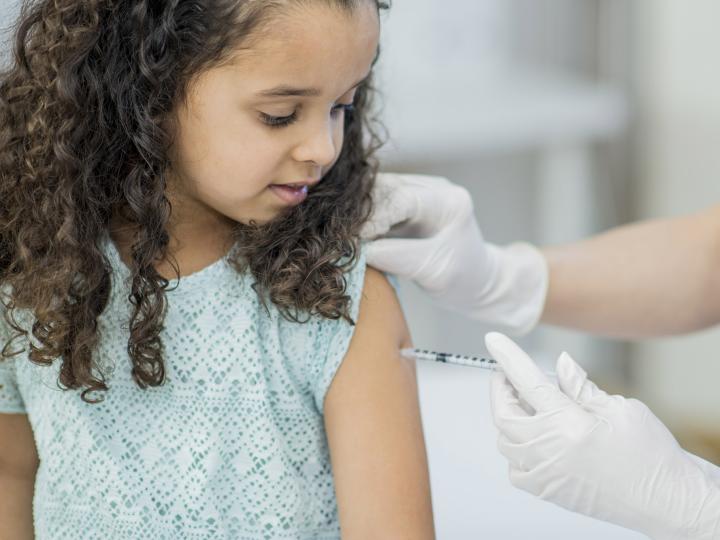For children aged between 5 and 12 there may be other, broader reasons why they would want to be vaccinated against coronavirus. The Ombudsman is thinking here of healthy children whose families may include parents, siblings, or other relatives in fragile health, and who therefore want to be vaccinated; and also of children who suffer a fear of infection and illness. For these children, vaccination reduces the risk of infecting their loved ones, or it removes the fear of becoming ill. Vaccination can also give these children a greater sense of safety and increased freedom of movement. They can undertake activities that are good for their general development and which they may have avoided until now.
Vaccination can benefit children’s education, but keeping schools open must not be its objective
The option to vaccinate may have an indirectly positive effect on children’s education. A child who catches the coronavirus today has to go into quarantine. If there are many cases of infection in a class or in a school, all the children have to stay at home and follow online classes. Remote education is unfavourable for the development of most children, and it is known that these children suffer educational lags. Vaccinated children might contribute towards a reduced risk of infection at school amongst other children and teaching staff, thereby contributing indirectly to the accessibility and continuity of education. Vaccination can also contribute indirectly towards the mental health of children by allowing them to physically attend school.
The government must not make keeping schools open the objective of vaccinations. To do so would be to turn vaccination into an instrument with which to safeguard the accessibility of education. Children and parents would then feel under pressure to vaccinate; such pressure would be stressful and harmful to children’s development.
No push to vaccinate from government or schools, and no negative consequences for unvaccinated children
Creating the possibility to vaccinate children may also engender a sense of coercion or pressure. The Ombudsman considers that vaccination pressure hampers child development. Particularly in view of children’s social and emotional safety it is important that no such pressure is exerted. Unvaccinated children may feel unsafe if they are criticised or questioned about it by other children or adults. This perception of vaccination pressure and social insecurity can worsen if there are negative consequences for unvaccinated children. Governmental coronavirus policy must therefore ensure that there are no consequences attached to a child’s vaccination status. For instance, schools must not employ different quarantine regulations for vaccinated and unvaccinated children; nor must the QR system be introduced for young children.
Provide children and parents with good information, and involve children of 8 and above in decisions on their vaccination
If it becomes possible for children to be vaccinated, it is important that both parents and children are well informed about the choice so that they can reach a well-considered decision on whether to vaccinate the child in its own best interests. Children are quite able to express their own opinion from the age of about eight. They have a right to be involved in the discussion, and to have an influence on the decisions that affect them. The Ombudsman therefore advises parents to involve their child in the decision on whether or not the child should be vaccinated. The government and the GGD can provide the parents with the information they need. The information provided by government and the GGD must be understandable, independent, easy to find, and proactively offered. Information directed towards children must be age-appropriate and disseminated in the places and through the channels that children use. The information provided to children and to adults must make clear what the advantages and possible risks of vaccination are. The information must be non-coercive in character, and the voluntary character of the choice must be made paramount.
